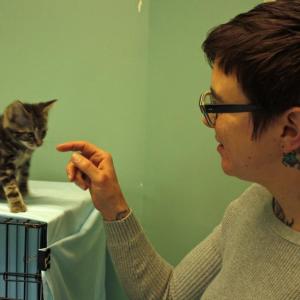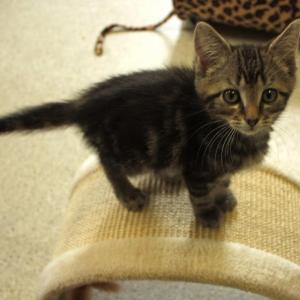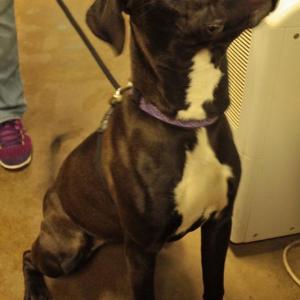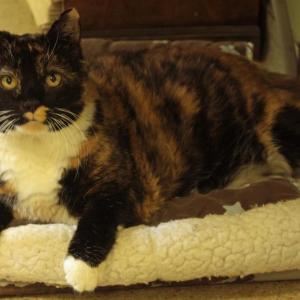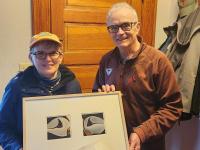Shelters work hard to make adopting a dog or cat a success, and you can too
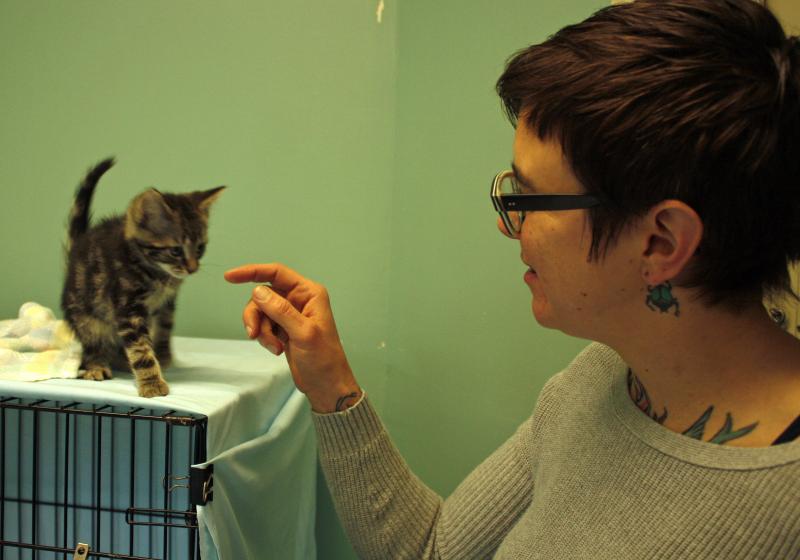 P.A.W.S. Animal Adoption Center Executive Director Amie Hutchison and one of the kittens the shelter has that is just about ready to be available for adoption. (Photo by Holly S. Edwards)
P.A.W.S. Animal Adoption Center Executive Director Amie Hutchison and one of the kittens the shelter has that is just about ready to be available for adoption. (Photo by Holly S. Edwards)
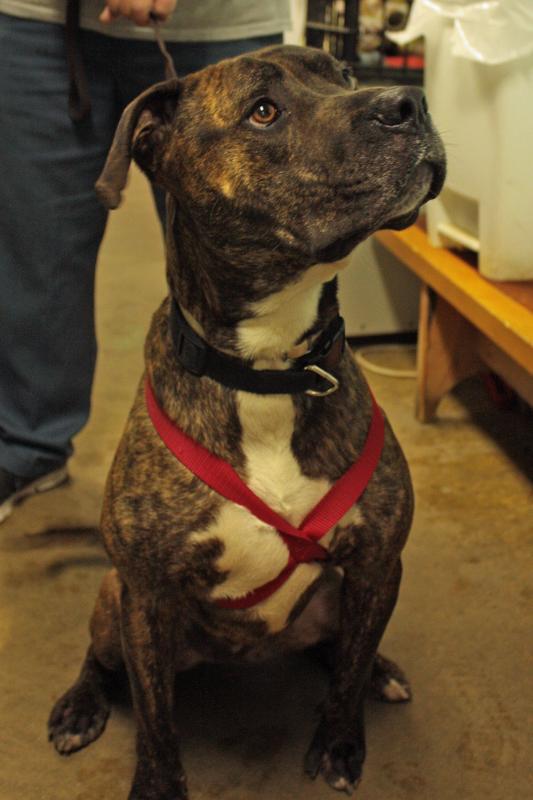 (Photo by Holly S. Edwards)
(Photo by Holly S. Edwards)
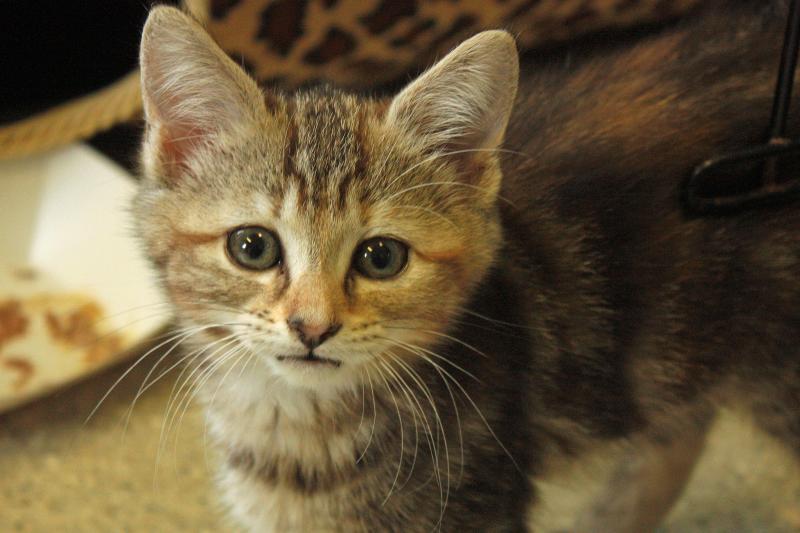 (Photo by Holly S. Edwards)
(Photo by Holly S. Edwards)
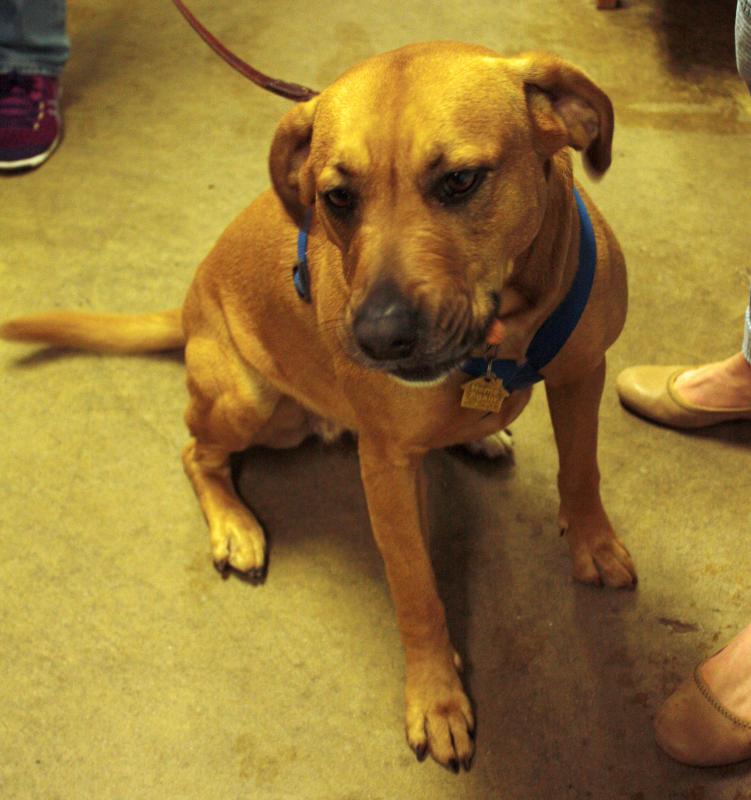 Maebel is a hound mix and she is available for adoption, walks and even slumber parties! (Photo by Holly S. Edwards)
Maebel is a hound mix and she is available for adoption, walks and even slumber parties! (Photo by Holly S. Edwards)
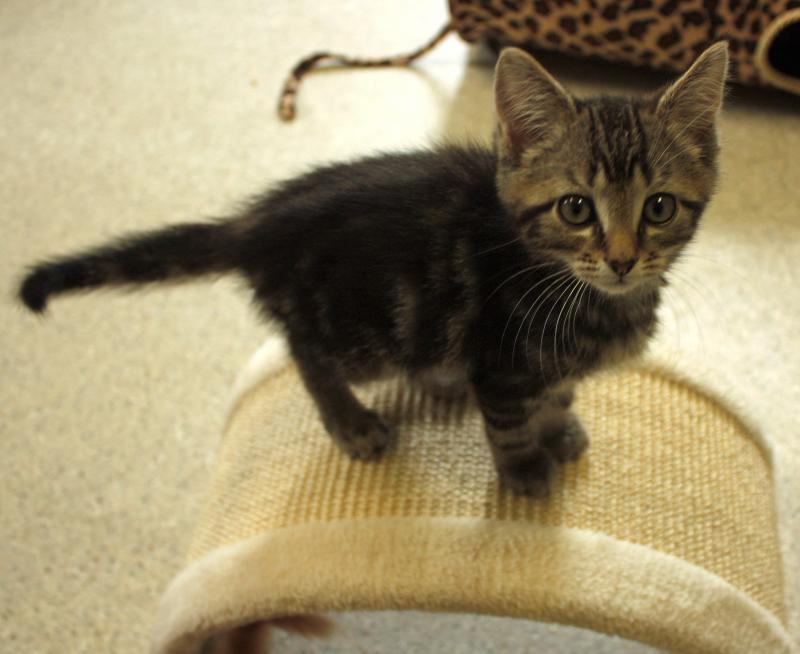 (Photo by Holly S. Edwards)
(Photo by Holly S. Edwards)
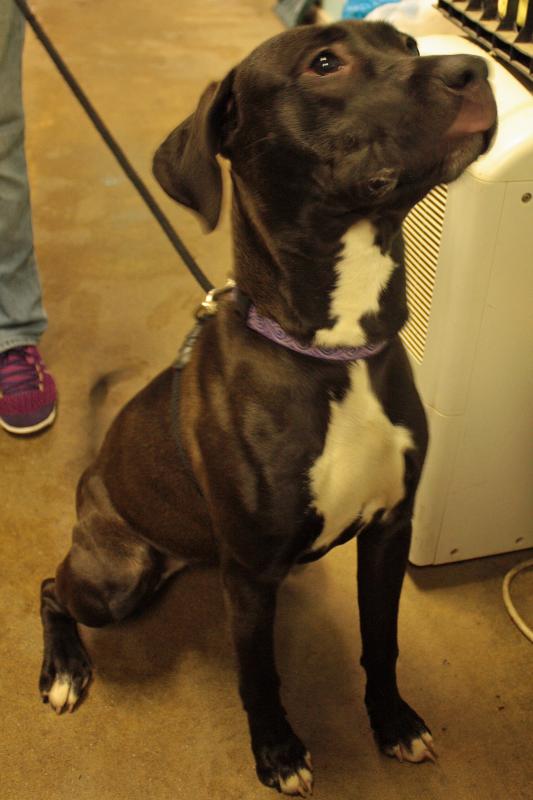 (Photo by Holly S. Edwards)
(Photo by Holly S. Edwards)
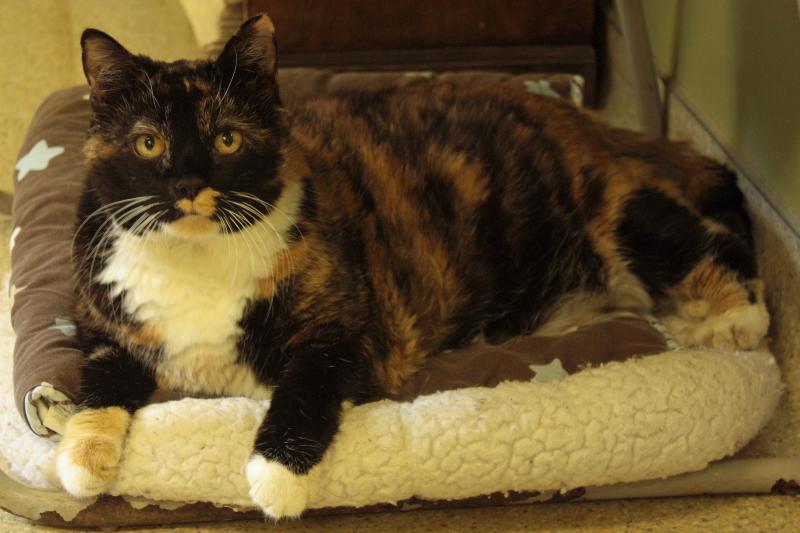 (Photo by Holly S. Edwards)
(Photo by Holly S. Edwards)
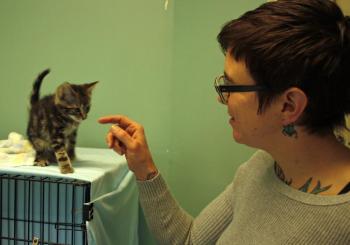 P.A.W.S. Animal Adoption Center Executive Director Amie Hutchison and one of the kittens the shelter has that is just about ready to be available for adoption. (Photo by Holly S. Edwards)
P.A.W.S. Animal Adoption Center Executive Director Amie Hutchison and one of the kittens the shelter has that is just about ready to be available for adoption. (Photo by Holly S. Edwards)
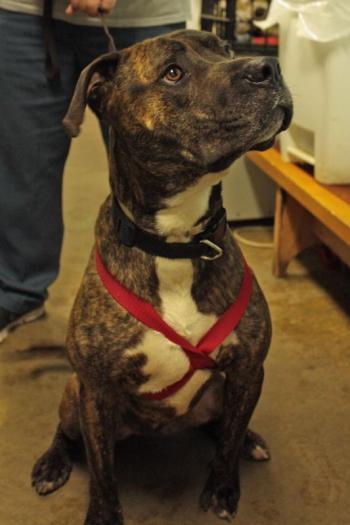 (Photo by Holly S. Edwards)
(Photo by Holly S. Edwards)
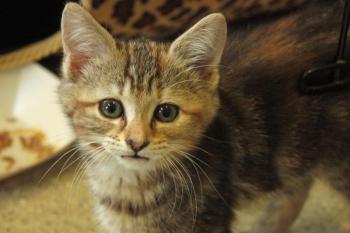 (Photo by Holly S. Edwards)
(Photo by Holly S. Edwards)
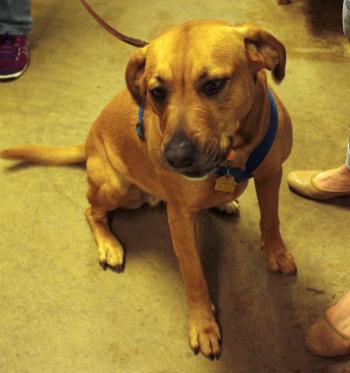 Maebel is a hound mix and she is available for adoption, walks and even slumber parties! (Photo by Holly S. Edwards)
Maebel is a hound mix and she is available for adoption, walks and even slumber parties! (Photo by Holly S. Edwards)
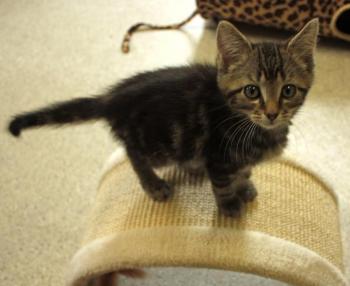 (Photo by Holly S. Edwards)
(Photo by Holly S. Edwards)
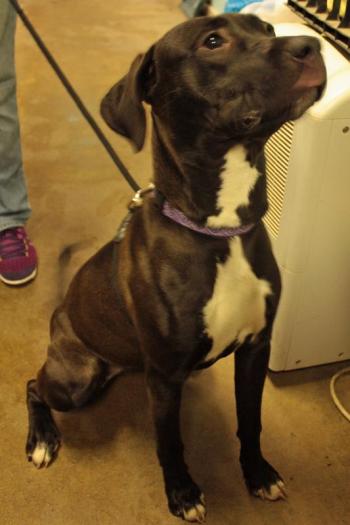 (Photo by Holly S. Edwards)
(Photo by Holly S. Edwards)
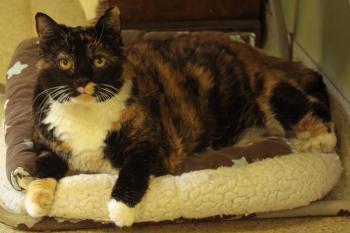 (Photo by Holly S. Edwards)
(Photo by Holly S. Edwards)
Adopting a dog or cat is a serious commitment, and while new owners obviously hope it works out, nobody wants a perfect match more than the people who take in and care for stray and surrendered animals. But how do you go about making sure the dog or cat you choose is right for you, and you are right for them?
The ASPCA’s adoption program Meet Your Match includes both "canine-ality" and "feline-ality" assessments. And while each shelter uses some form of behavior and personality assessment for both animals and potential adopters, others, like P.A.W.S. Animal Adoption Center in Rockport, prefer to rely less on a formal program and more on building relationships.
"Meet Your Match is a great program, and it's a great way to slow people down a little and start talking about what they are looking for before they go back and look at all those faces," said P.A.W.S. Executive Director Amie Hutchison.
P.A.W.S. is one of two shelters in the Midcoast, the other being Pope Memorial Humane Society of Knox County, in Thomaston. P.A.W.S. has contracts with Camden, Rockport, Lincolnville, Belfast, Northport, Searsmont, Liberty, Islesboro and Swanville to take in their stray animals. Pope Memorial contracts with Rockland, Thomaston, Warren, Owls Head, St. George, Port Clyde, Martinsville and Tenants Harbor, South Thomaston Spruce Head, Hope, Union, Appleton, Montville, Cushing, Matinicus, North Haven, Vinalhaven, Stockton Springs, Morrill and Thorndike.
Meet Your Match gives a snapshot of what the animal is like, and it's handy when a shelter does not have a history on an animal. Based on the dog's or cat's personality, training level, interests and energy level, each is assigned a color and that card is located on the outside of their kennel.
Then, adopters are asked to fill out a questionnaire that rates their reasons for wanting to own a dog or cat. Do they like to hike and run, or do they prefer to stay at home. Are there children in the home, or is the home adult-only. And what about other pets? Will the dog or cat be an only pet, or will it be expected to cohabitate?
After answering the questions, the adopters are given a score and a corresponding color. And this happens before they see any animals.
"When you go back into a kennel where they have done the process, the dogs and cats are color-coded and the idea is the easiest match is the animal with the same color you have," said Hutchison. "It's a great place to start, but it's certainly not where adopters always end up."
Sometimes, people end up selecting an animal because it looked like one they used to have, said Hutchison.
"In that case, we step in and say, ‘you said you wanted an animal that's OK to be alone for eight hours, and that only likes to go on short walks but you have fallen in love with an animal that has shown us it's going to need a lot of exercise, a lot of training, so are you ready to change your expectations of that animal?’" she said. "If we have that conversation beforehand, then I think it helps ease that heartbreak that happens when they bring home a cat the love, one they think will get along with their others, and we know it has shown it can't be around other cats."
She said sometimes, that conversation will prompt a second look, and consideration of other available animals.
But if someone has a plan, and they think they can make it work, Hutchison said they will work with the adopter, keep in touch and let them know that if they change their mind or find it hasn't worked after all, they can come back.
"It doesn't mean you are a failure if you can't make it work. And it's why we also have a three-day period to take the animal home and if it's not the right match, bring them back and we'll try again," said Hutchison.
Dogs and cats in kennels, and in shelters, can often exhibit different behaviors than what staff sees, and even what owners, who have relinquished them, have told them they know them to behave.
And that's why most shelters ask a lot of questions when someone brings in a pet they can't keep anymore. The more they know, the better match they can make for the animal.
"If the match isn't right and you end up bringing the animal back, we end up knowing more about the animal, you probably know more about your desires as an adopter and it's a win-win for everybody really," said Hutchison.
Both P.A.W.S. and Pope Memorial Humane Society provide a variety of ways for the animals in their care to get to know potential adopters, and vice versa. There are always opportunities to take a dog out for a walk, even if you have no intention of adopting, and there are places to sit down and get to know the cats too. Both offer "slumber parties," and P.A.W.S. has a foster program.
And not all pets want to be around people. Take feral and shy cats, for example, and those that have never really taken to using a litter box. Pope has barn buddy cats available for adoption for those cats that prefer a solitary life with other animals in a supportive and safe place. Those neutered cats are available for free, and they can help keep down the rodent population in working barns and heated outbuildings that they can call home.
For travelers, Hutchison said the most important thing they can do is to microchip their cat or dog when it travels with them. Also, make sure the information is up to date, and that the chip company has your mobile number.
Dogs are held at P.A.W.S. for seven days before they are readied for adoption, and for cats it's just two days.
"With dogs, typically is a stray isn't claimed within 24 hours, they aren't. We are a small community and with social media, if you are actively looking for your dog and it is here, you know quickly," said Hutchison. "After that, nobody is looking for the animal."
Only 2 percent of stray cats are claimed within 24 hours, and Hutchison said it's heartbreaking because for all the cats that go unclaimed, there is a whole other group of folks looking for their pets, as evidenced by the plethora of "Lost" posters on their bulletin boards.
One way to ensure your pet doesn't get lost while with you on your travels is to not bring them. And in that case, if it's a dog, P.A.W.S. has a way to give you a pet fix.
"We encourage tourists to visit, and if you haven't brought your animal with you and you're going for a hike and at home you always take your dog, come in and get a hiking buddy from us and go for that hike," said Hutchison. "There is a volunteer application to fill out and a one-page offsite form, but it's easy and quick. It's great for the dog to get out, and it's great for the visitor. And then tell us how they did when you come back. Or maybe, you want to adopt them and take them home with you!"
Reach Holly S. Edwards at hollyedwards@penbaypilot.com and 706-6655.
Event Date
Address
United States

